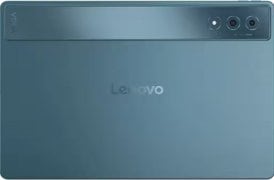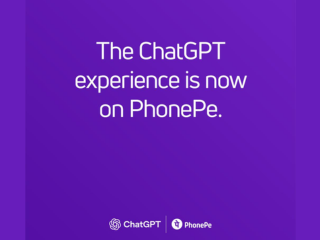Google Reintroduces Cameyo to Let Enterprises Run Windows Apps on Chrome Browser
Google’s Cameyo is a virtual app delivery (VAD) solution that allows users to run legacy apps as progressive web apps.

Photo Credit: Google
Google introduced Cameyo as part of its enterprise family of products
Google relaunched Cameyo, a virtual app delivery (VAD) solution, on Wednesday. Now called Cameyo by Google, the company's latest enterprise product enables users to run legacy Windows or Linux-based applications as progressive web apps (PWAs) or directly in the Chrome browser. The tech giant also says that the solution will eliminate the need to use virtual desktop environments to stream apps. The relaunch comes more than a year after the Mountain View-based tech giant acquired the company, with a strategy focused on bringing enterprises tied to Microsoft's operating system to ChromeOS.
Google Relaunches Cameyo for Enterprises
In a blog post, Google Cloud announced the relaunch of Cameyo. Citing data from last year's Forrester study (commissioned by Google), the company claimed that while 90 percent of IT leaders prefer web-based applications for their end-user computing strategy, 50 percent of their internal applications still rely on legacy client-based apps. The company claims that Cameyo fills this gap.
The main offering of the enterprise product is its virtual app delivery solution. This means any operating system-tied application can be converted into PWAs or run entirely on the Chrome browser. This method also solves the enterprise hurdle of bearing the cost for virtual desktops, which is traditionally used to stream applications.
Cameyo supports all kinds of legacy applications across specialised tools such as enterprise resource planning (ERP), Windows-based design programmes such as AutoCAD, and even the desktop version of Excel. Google says this solves two problems: First, the end user experience is improved as they don't have to switch between virtual desktop environments; and second, the IT department does not have to handle the complexity.
But the underlying strategy of Google is simple. It wants enterprises to rely less on Microsoft's ecosystem and instead migrate to its products. Additionally, the switch to web apps will also help the company push enterprises towards its ChromeOS-powered Chromebooks, as they will be inherently compatible with these applications.
Likely this is why the blog post mentions this near the end as a subtle nudge: “For organisations that have been looking for a more secure alternative to Windows in the wake of years of security incidents, outages, and forced upgrades to the next Windows version, Cameyo now makes it possible for IT to migrate to ChromeOS — including the use of ChromeOS Flex to convert existing PCs to ChromeOS — while maintaining access to all of their Windows apps.”
Get your daily dose of tech news, reviews, and insights, in under 80 characters on Gadgets 360 Turbo. Connect with fellow tech lovers on our Forum. Follow us on X, Facebook, WhatsApp, Threads and Google News for instant updates. Catch all the action on our YouTube channel.
Related Stories
- Samsung Galaxy Unpacked 2025
- ChatGPT
- Redmi Note 14 Pro+
- iPhone 16
- Apple Vision Pro
- Oneplus 12
- OnePlus Nord CE 3 Lite 5G
- iPhone 13
- Xiaomi 14 Pro
- Oppo Find N3
- Tecno Spark Go (2023)
- Realme V30
- Best Phones Under 25000
- Samsung Galaxy S24 Series
- Cryptocurrency
- iQoo 12
- Samsung Galaxy S24 Ultra
- Giottus
- Samsung Galaxy Z Flip 5
- Apple 'Scary Fast'
- Housefull 5
- GoPro Hero 12 Black Review
- Invincible Season 2
- JioGlass
- HD Ready TV
- Laptop Under 50000
- Smartwatch Under 10000
- Latest Mobile Phones
- Compare Phones
- Vivo Y500 Pro
- Realme GT 8 Pro Aston Martin F1 Limited Edition
- Huawei Mate 70 Air
- Moto G57
- Moto G57 Power
- Motorola Edge 70
- Moto G Play (2026)
- Moto G (2026)
- MacBook Pro 14-inch (M5, 2025)
- Asus Vivobook S16 (S3607QA)
- iQOO Pad 5e
- OPPO Pad 5
- Noise Diva 2
- Noise Halo 2
- Acerpure Nitro Z Series 100-inch QLED TV
- Samsung 43 Inch LED Ultra HD (4K) Smart TV (UA43UE81AFULXL)
- Asus ROG Ally
- Nintendo Switch Lite
- Haier 1.6 Ton 5 Star Inverter Split AC (HSU19G-MZAID5BN-INV)
- Haier 1.6 Ton 5 Star Inverter Split AC (HSU19G-MZAIM5BN-INV)

















